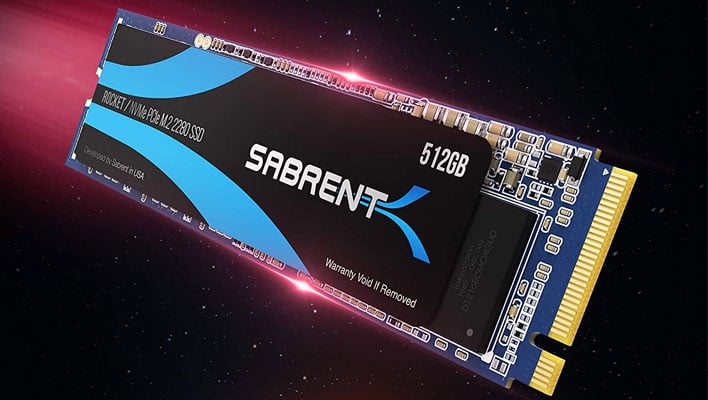Heads-Up: Some NVMe SSDs Could Lose Your Data If The Power Suddenly Goes Out

Power outages are not only inconvenient, especially if they linger on forcing you fumble around by candlelight, they can also eradicate your data. No duh, right? Well, not so fast. Today's drives have protections in place to prevent data loss during a sudden power outage, but they may not always work. Some recent tests shine light on the topic, and suggest that some consumer NVMe SSD models are more prone to data loss than others.
Typically speaking, consumer SSDs have fewer protections in place than enterprise models, though that really just depends on the specific drive. Another generality is that SSDs with onboard DRAM usually cost more, because you're paying for additional components and performance. However, that bit of cache is also what can make them more prone to data loss in some situations.
Just like your computer's DRAM modules, the DRAM cache on applicable SSDs serves as temporary storage. It does not retain data when there is no power. You can see where this could be a potential problem if there's an unexpected power outage.
Driver makers know this, of course, and so they bake in certain protections precisely for this scenario. In a white paper (PDF), Samsung describes power loss protection as a "critical element in data integrity," both to avoid data loss and preserve the Flash Translation Layer, which is a map of logical block addresses. During a normal shutdown, the SSD has enough enough time to write DRAM data to the drive's NAND flash memory chips.
One safeguard against sudden power loss is the use of capacitors, but due to the high cost, they're normally reserved for enterprise SSDs. In the aforementioned white paper, Samsung discusses an alternative method called journaling, a technique that can mitigate data loss during a power outage.
Got all that? So here's where things get interesting. Over on Twitter, Russ Bishop (@xenadu02) posted to test results from selection of SSDs in which he cut off the power to see there would be any data loss.

He initially tested four randomly selected NVMe SSDs from four different vendors. He manually pulled out the power cable, and two of the drives ended up losing the data that was stored in DRAM. Those were a 512GB Sabrent Rocket with a Phison PH-SBT-RKT-303 controller and a 2GB SK Hynix Gold P31 with an SHGP31-2000GM-2 controller.
The two other drives—2TB Samsung 970 Evo Plus with an MZ-V7S2O controller and 1TB WD Red SN700 with an WDS100T1R0C-68BDK0 controller—never loss data even after repeated testing. Bishop went on to say that he plans to test at least eight more models, some of which he already posted results. They include...
"To double-check my work I swapped drives around between enclosures. Fails still failed, Passes still passed. Swapped ports and cables too. Also re-tested previous failing drives after script changes and results are the same," Bishop added.
- Crucial P5 Plus 1TB (CT10000P5PSSD8): Pass
- Crucial P2 250GB (CT250P2SSD8): Pass
- Samsung 980 250GB )MZ-V8V250): Pass
- Kingston 250GB (SNV2/250G): Pass
- Seagate Firecuda 530 1TB (ZP10000GM30013): Pass
- Intel 670p 1TB (SSDPEKNU010Tz): Pass
- WD Black 1TB (WDS100T1B0E): Pass
- WD Green 240GB (WDS240G20C): Pass
Bishop notes that's FLUSH performance is all over the map, and that the Crucial P5 Plus, WD Red, and WD Green consistently performed the best (in that order). He also express surprise at the Kingston drive passing since it uses the same Phison controller as the Sabrent drive that failed. He chalked that up to firmware making a difference.
Our advice? Get yourself a UPS battery backup and the protection and piece of mind it affords. We'd recommend one with pure (not simulated or stepped) sine wave support. Here are some options...

